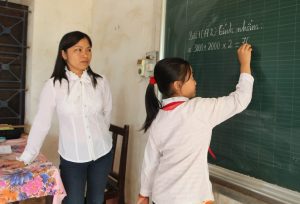Simposio online de Educación para la Carrera y Orientación Profesional en LATAM 2022 - Latin America Regional Syposium (Recurring)
Spanish
Other sources
Experts from many international, regional and national agencies generously share their views, experiences and findings on skills, helping policy-makers among other stakeholders to understand the linkages between education, training and the world of work, and how to integrate skills into national development planning to promote employment and economic growth.

Career guidance and employment services

Career guidance and counselling, career education and lifelong development of skills for employability are key for success in learning activities, effective career transitions, livelihood planning, entrepreneurship and in increasing labour market participation. They are instrumental in promoting skills utilization, recognition (RPL), as well as in improving enterprise human resource management.
Career development activities encompass a wide variety of support activities including career information and advice, counselling, work exposure (e.g. job shadowing, work experience periods), assessment, coaching, mentoring, professional networking, advocacy, basic and employability skills training (curricular and non-curricular) and entrepreneurship training. It is often an area which is fragmented across different ministries (e.g. education, TVET, employment, youth) requiring an effort to achieve the necessary coordination to provide adequate support to individuals during learning, employment and unemployment/inactivity periods.
Skills policies and strategies

Skills and employment policies should be viewed together. The full value of one policy set is realized when it supports the objectives of the other. For investments in education and training to yield maximum benefit to workers, enterprises, and economies, countries’ capacities for coordination is critical in three areas: connecting basic education to technical training and then to market entry; ensuring continuous communication between employers and training providers so that training meets the needs and aspirations of workers and enterprises, and integrating skills development policies with industrial, investment, trade, technology, environmental, rural and local development policies.
Teachers, trainers and training organizations

At the heart of any skills system are the managers and staff of training institutions who face considerable challenges to deliver quality programmes at a time of fiscal constraint. As the expectations placed on institutions continue to grow, managers and trainers are increasingly expected to deliver flexible, responsive and current programmes based on strong partnerships with local employers that provide good employment outcomes. Because of this, there is a need for constituents to build the capacity of their institutional workforce to meet the expectations placed upon them by demand driven systems.
Work-based learning and skills utilization

Increasingly, countries around the world, at all levels of development are putting work-based learning, particularly apprenticeships, high on their policy agenda, recognizing its potential for reducing skills mismatch, meeting skills demand of a fast changing labour market, providing cost-effective training, promoting private sector development and smoothing transitions to the world of work.
Moreover, the issue of how skills are used in the workplace and how businesses engage with the local skills ecosystem are getting greater attention. It is increasingly recognized that workers who better use their skills are more likely to have greater job satisfaction, earn better wages and are more prepared to adapt to changes in the nature of work, while employers benefit from a more productive and innovative workforce, enabling them to maximise business performance and profitability.
Simposio Educación para la Carrera y Orientación Profesional en LATAM 2022 busca poner en el centro del debate el rol de la educación para la carrera y la orientación profesional (o laboral) como herramientas y estrategias para contribuir a mejorar los resultados de los sistemas educativos, de empleo y de las sociedades en su conjunto. Esto, desde la exploración de evidencias, desafíos y buenas prácticas, en consideración de los desarrollos que en esta materia existen en la región, así como también de las necesidades y particularidades de sus diversos pueblos.
OCIDES Foundation, in its role as "focal point" of Global Careers Month, is oriented to highlight experiences, research and policies, in consideration of the particular needs and developments that exist regarding career education and guidance in the LATAM region, and of its diverse communities.
Permanent website and programme: https://www.ocides.org/simposio-educacion-para-la-carrera-y-orientacion-profesional-en-latam-2022/
Zoom register link: https://uchile.zoom.us/webinar/register/WN_VJbW4laBSxWt8OvU2R5X3Q
Time: 4 sessions, one per week from 9.00 to 13.30 (GMT-3)
Contact: Fundación OCIDES: [email protected]
www.ocides.org
Career guidance
Americas
